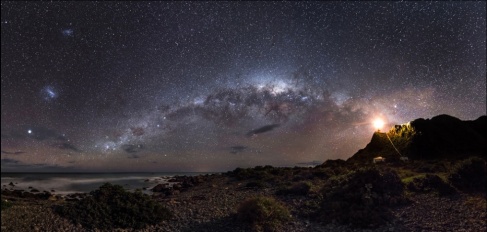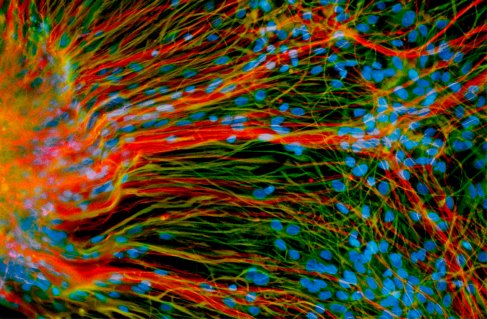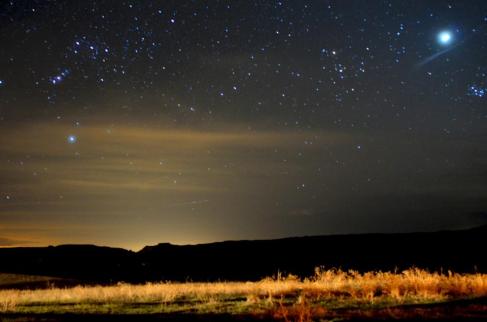Today, the Royal Observatory of the United Kingdom and Sky at Night Magazine announced the winners of the 2013 Astronomy Photographer of the Year competition. The competition opens every year for professionals and amateurs alike to submit their best photos of the universe. The winners this year, as always, were stunning, as were all of the entries.
Guiding Light to the Stars by Mark Gee. 2013 Astronomy Photographer of the Year Overall Winner.
I think that contests like this one are important to the future of astronomy. It gets the public interested in not only the beauty of space, but also in the importance of studying it scientifically. Categories like the Young Astronomer Photographer of the Year and Newcomer of the Year celebrate new additions to the cosmology world.
Newcomer of the Year Winner: “Venus Transit.” Foxhunter’s Grave, Welsh Highlands. Photocredit: Sam Cornwell
Additionally, any opportunity when science and art can exist cohesively is worth an entire exhibition. One does not usually think of the two together, yet they often compliment each other beautifully. I recommend a scientific art exhibition to anyone who has the chance to see one, whether it is long exposures of the night sky or magnified strands of cells or DNA.
Art in Science. Precursor Neural Cells. Photo Credit: Su-Chun Zhang.
Anyway, back on topic! You can check out these amazing photos online on the observatory’s website as well as Flickr. I suggest checking out all the winners of every category, as well as browsing the entries and winning shots from previous years. I have also provided a hyperlink to the overall winner, Mark Gee’s, personal Flickr page. He has many amazing photos of the night sky over New Zealand that are worth checking out!
My brother and I recently became interested in astrophotography. This is one of his shots from outside Zion National Park in Utah. Photocredit: Leon Emmett Sport III
I hope these images further inspire you to pursue an interest in outer space and our place in the universe. I also hope you may be inspired to pick up a camera and try to make some images yourself. I know I am! Here are some easy instructions on how to take long exposures of the night sky at home. You can always consult your camera’s manual or Google the model for further information. Stay golden!
Additional Sources:




